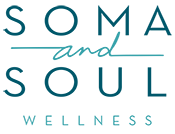As men age, they naturally experience a decline in hormone levels, particularly testosterone. This decline, often referred to as andropause or male menopause, can lead to a variety of symptoms such as decreased muscle mass, fatigue, reduced libido, and cognitive changes. While hormone replacement therapy (HRT) is a common treatment for these symptoms, it is not the only option. Many men seek alternatives to HRT due to potential risks and side effects. By exploring non-HRT strategies, we can manage and mitigate the effects of declining hormone levels in men over 40.
Lifestyle Modifications
- Physical Activity
Regular exercise is one of the most effective ways to naturally boost testosterone levels and counteract the symptoms of andropause. Resistance training, in particular, has been shown to significantly increase testosterone production. One study found that men engaging in regular strength training experienced notable improvements in muscle mass, strength, and hormone levels.
- Aerobic Exercise
In addition to resistance training, aerobic exercise such as walking, running, and cycling can improve cardiovascular health and overall well-being. Aerobic exercise has been associated with improved mood and energy levels, which can help mitigate the fatigue and depression sometimes linked to low testosterone.
Nutrition and Diet
- Balanced Diet
Maintaining a healthy, balanced diet is crucial for hormone health. Diets rich in lean proteins, healthy fats, fruits, vegetables, and whole grains provide the necessary nutrients for optimal hormone production. For instance, vitamin D and zinc play vital roles in testosterone synthesis. Foods such as fatty fish, nuts, seeds, and leafy green vegetables are excellent sources of these nutrients.
- Avoiding Excess Sugar and Processed Foods
High sugar intake and processed foods can lead to weight gain and insulin resistance, both of which are associated with lower testosterone levels. Reducing the consumption of these foods can help maintain a healthy weight and support hormonal balance.
Stress Management
- Mindfulness and Meditation
Chronic stress can lead to elevated levels of cortisol, a hormone that negatively impacts testosterone production. Practices such as mindfulness, meditation, and deep breathing exercises can reduce stress and improve overall hormonal health. It has been demonstrated that men who practiced mindfulness techniques experienced lower cortisol levels and improved testosterone balance .
- Adequate Sleep
Quality sleep is essential for hormone regulation. During sleep, the body repairs itself and produces vital hormones, including testosterone. Ensuring 7-9 hours of restful sleep per night can significantly impact hormone levels and overall health. Research has shown that sleep deprivation leads to a notable decrease in testosterone production.
Supplements
- Herbal Supplements
Certain herbal supplements, such as ashwagandha and fenugreek have been studied for their potential to enhance testosterone levels. For example, a study by Wankhede et al. (2015) found that ashwagandha supplementation significantly increased testosterone levels in men undergoing resistance training.
- Omega-3 Fatty Acids
Omega-3 fatty acids, commonly found in fish oil, have anti-inflammatory properties that support overall health and hormone balance. These supplements can help mitigate the effects of aging and support testosterone production.
Conclusion
While hormone replacement therapy is a viable option for some men experiencing symptoms of low testosterone, there are numerous non-HRT strategies that can effectively manage these symptoms. Regular physical activity, a balanced diet, stress management, quality sleep, and targeted supplementation can all contribute to maintaining healthy hormone levels and improving quality of life for men over 40. By adopting these lifestyle modifications, men can naturally support their hormonal health and mitigate the effects of aging without the need for hormone replacement therapy.
Take the First Step Toward a Stronger, Healthier You with the 40P Program!
Are you ready to transform your body, optimize your health, and experience a higher quality of life? The 40P Program is designed specifically for men who want to build lasting habits and live a healthier lifestyle. With our comprehensive approach to nutrition and fitness, you’ll gain the knowledge and support you need to make meaningful changes.
Here’s how the 40P Program can help you:
- Personalized Nutrition Plan: Tailored to your needs and preferences, ensuring you get the right nutrients to fuel your body and support your goals.
- Balanced Meals: Learn to create balanced meals with quality proteins, complex carbohydrates, healthy fats, and a variety of vegetables and fruits.
- Protein Boost: Understand how to increase your protein intake effectively to support muscle maintenance and growth.
- Whole Foods: Gradually incorporate more whole foods into your diet to enhance satiety, manage energy levels, and improve overall health.
- Body Transformation Tracking: Regularly monitor your weight and body measurements to track your progress and make informed adjustments.
- Biofeedback: Weekly check-ins to assess your energy levels, sleep quality, appetite, mood, performance, recovery, and more.
- Ready to Get Started?
Take the first step today!
We’re looking for 10 men who want to level up their physique, feel younger and create a new type of confidence in themselves. If you aren’t happy with your current results or feel like you don’t know where to start don’t wait any longer to take control of your health and fitness. Join the 40P Program and embark on a journey to a healthier, stronger, and more vibrant you. Together, we’ll create a sustainable plan that fits your lifestyle and helps you achieve your goals. The journey begins on Monday, June 17, 2024
References
Hayes LD, Grace FM, Baker JS, et al. “The effect of exercise on hormone status in older men: a systematic review.” Journal of Aging Research. 2010.
Kraemer WJ, Ratamess NA. “Hormonal responses and adaptations to resistance exercise and training.” Sports Medicine. 2005.
Pilz S, Frisch S, Koertke H, et al. “Effect of vitamin D supplementation on testosterone levels in men.” Hormone and Metabolic Research. 2011.
Ronnestad BR, Nygaard H, Raastad T. “Physiological elevation of endogenous hormones results in superior strength training adaptation.” European Journal of Applied Physiology. 2011.
Caruso R, Nanni RC, Riba MB, et al. “The impact of psychosocial factors on the quality of life of male patients with prostate cancer.” Psycho-Oncology. 2014.
Leproult R, Van Cauter E. “Effect of 1 week of sleep restriction on testosterone levels in young healthy men.” JAMA. 2011.
Wankhede S, Langade D, Joshi K, et al. “Examining the effect of Withania somnifera supplementation on muscle strength and recovery: a randomized controlled trial.” Journal of the International Society of Sports Nutrition. 2015.
Tateno M, Ishida H, Iida T, et al. “Effects of fish oil on severity of physical activity and mental health in middle-aged men.” Journal of Nutritional Biochemistry. 2013.




